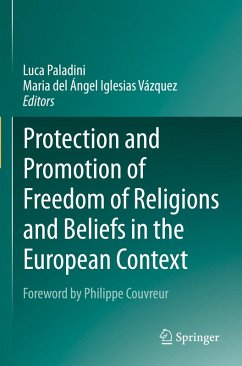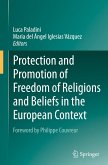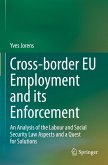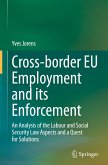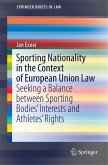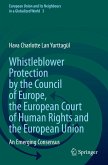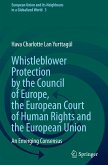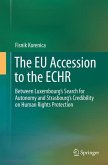This book offers an in-depth analysis of a fundamental human freedom and a cornerstone of democracy: the Freedom of Religions or Beliefs (FoRB). The book focuses on the legal protection and promotion of FoRB in Europe because, in this context, exercising this right goes beyond a mere internal positioning in terms of legislation; rather, it is influenced by international and supranational case law, as well as the promotional activities of selected non-state subjects of international law.
The content is divided into three sections: Part I on the European Convention of Human Rights, Part II on the EU, and Part III on other international actors. The first two Parts examine FoRB in its systematic aspects and "day-to-day" aspects. In contrast, the third Part highlights the promotional activities carried out by the Holy See, the ILO, the Council of Europe ("beyond the Strasbourg Court"), and the OSCE to promote, recommend or otherwise support it. Overall, the volume highlights how the exercise of FoRB can be ensured via international and supranational legal protection (both normative and judicial) and via promotional activities aimed at encouraging and helping states guarantee tolerance and pluralism in their national legislation.
The 16 main chapters offer a broad overview of the topic under investigation. Each contribution can be seen as a stand-alone study and, simultaneously, as a link in a chain of legal analysis that connects multiple FoRB-focused questions.
The book offers a valuable tool for all readers with an academic or professional interest in FoRB and those who have to address the issue of how to protect this freedom. It is intended not only for academics who work in the field of law but also for legal practitioners (judges, lawyers, diplomats), human rights advocates, members of religious and spiritual communities, policymakers and students.
The content is divided into three sections: Part I on the European Convention of Human Rights, Part II on the EU, and Part III on other international actors. The first two Parts examine FoRB in its systematic aspects and "day-to-day" aspects. In contrast, the third Part highlights the promotional activities carried out by the Holy See, the ILO, the Council of Europe ("beyond the Strasbourg Court"), and the OSCE to promote, recommend or otherwise support it. Overall, the volume highlights how the exercise of FoRB can be ensured via international and supranational legal protection (both normative and judicial) and via promotional activities aimed at encouraging and helping states guarantee tolerance and pluralism in their national legislation.
The 16 main chapters offer a broad overview of the topic under investigation. Each contribution can be seen as a stand-alone study and, simultaneously, as a link in a chain of legal analysis that connects multiple FoRB-focused questions.
The book offers a valuable tool for all readers with an academic or professional interest in FoRB and those who have to address the issue of how to protect this freedom. It is intended not only for academics who work in the field of law but also for legal practitioners (judges, lawyers, diplomats), human rights advocates, members of religious and spiritual communities, policymakers and students.

